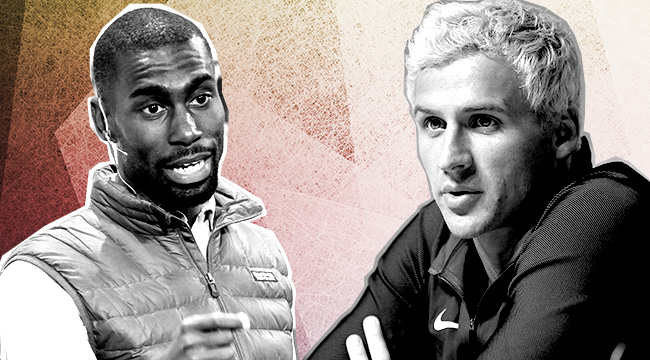
When Ryan Lochte lied about being robbed to cover up for drunkenly vandalizing a gas station at the Rio Olympics, he was subjected to a gauntlet of the drawbacks of fame. He was the subject of ridicule all over the internet, he lost his sponsorships, and his accomplishments in the Olympic pool may forever be overshadowed.
But considering what might have happened if he was a black athlete, he probably got off easy. Allow activist and Black Lives Matter figurehead DeRay Mckesson to explain how Lochte, even in his darkest days, benefited from “textbook white privilege” (taken from an interview with UPROXX’s own Kimberly Ricci):
I mean, [Lochte] lied, right? And that is without question, he lied. And it is the privilege of whiteness that a lie becomes embellishment. And that he gets a major network with a major anchor, [who] allows him to apologize. Not to apologize for being “a kid,” which is essentially the tone with which he provided the apology, if you can call it that.
And we juxtapose that to kids like Tamir Rice, legitimately a child, treated as if he was an adult by police and then in the public sphere by some. Think about Mike Brown, who was a teenager. People say that he looked like an adult. Ryan Lochte is 32 years old. It is unquestionable that he’s an adult, and he still is allowed — even though there is a lot of attention on him — there’s still this narrative, like, “Oh well, he just made a mistake.” He chose to tell something that isn’t true. That is a lie.
Even the most angry reactions to Lochte’s adventure around the truth never approached the absolute bile that is spewed on Twitter any time a black athlete even so much as dances in the end zone. Imagine if a black athlete lied about being robbed to cover up for vandalism at an American gas station.
At this point, we can’t save the Cam Newtons or even Josh Gordons from the Twitter eggs, letters to the editor, and racist pundits, but we sure don’t have to shed a tear for Ryan Lochte.






